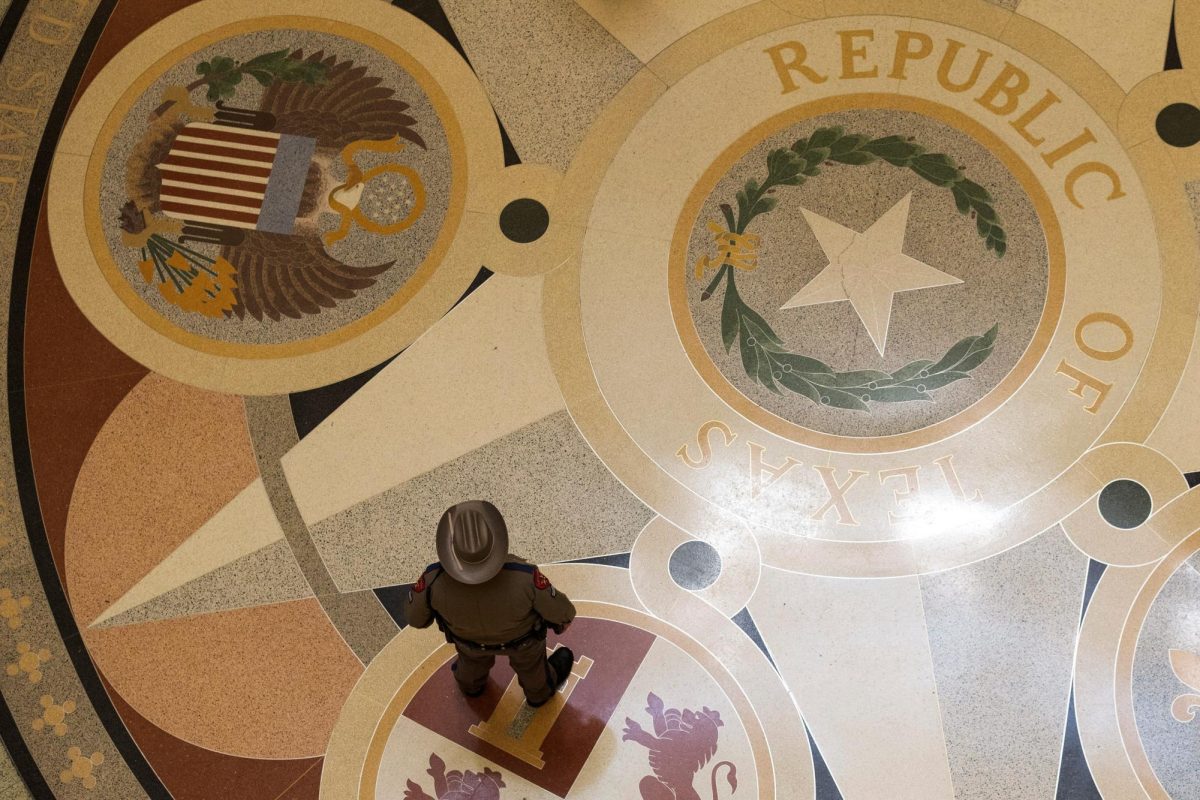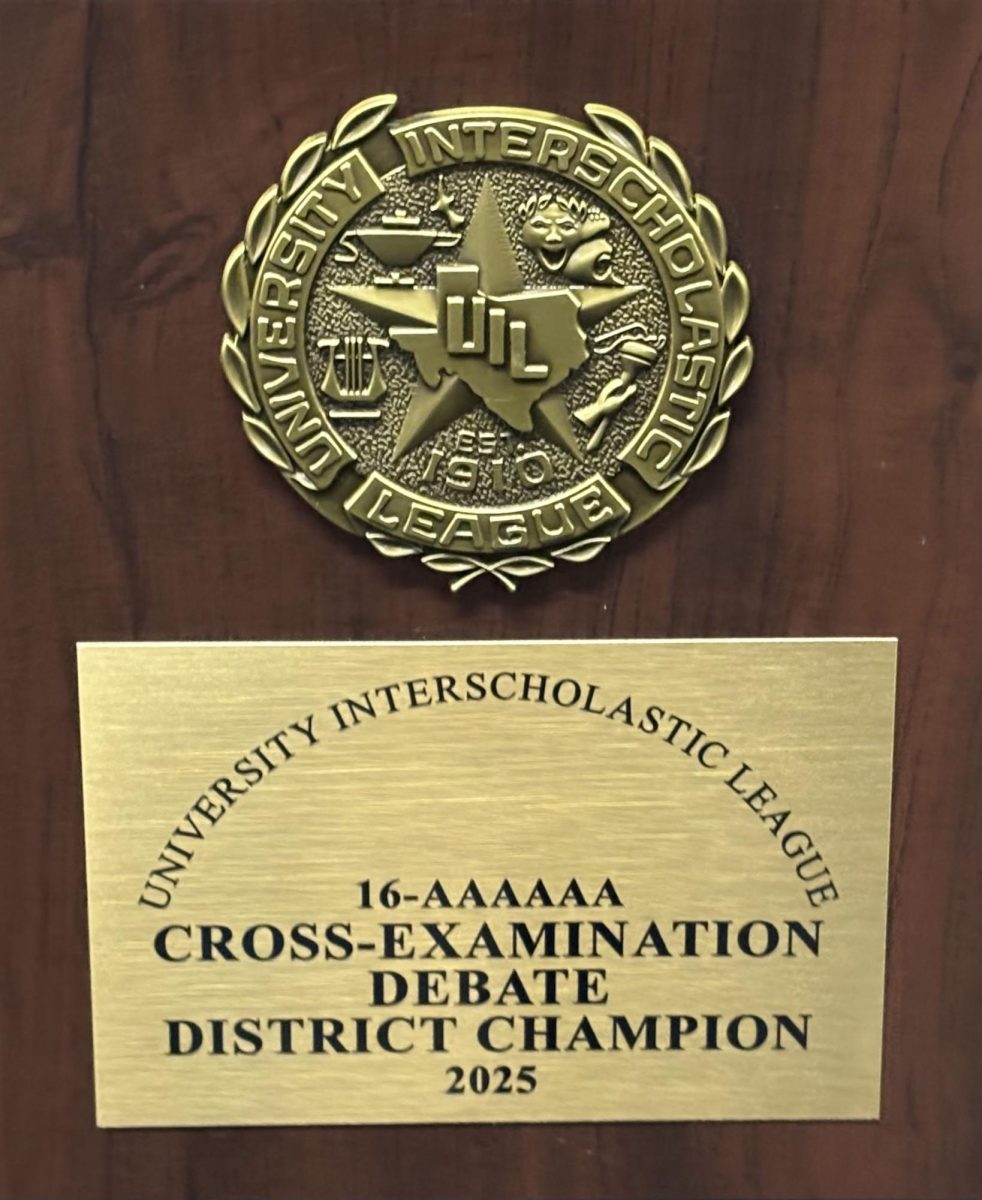During the 2025-26 Texas legislative session, various new bills were passed that affect public education.
Phone Ban
The most controversial of these new laws is House Bill 1481, which prohibits the use of “personal wireless communication devices” by students during the school day. The list of restricted devices include phones, headphones, personal tablets or computers, and any other personal device not issued by the school district. The only exception to the ban is the allowance of personal devices needed for medical purposes that have been recommended by a student’s physician.
In response, CFISD now mandates that all students must keep their personal devices turned off and in their backpacks. If a student is caught with a personal device, the device will be taken up and returned at the end of the day, with escalating consequences on account of repeat offenses.
Many students are not happy with the new rules, claiming that previous district policies were sufficient.
“If you use it during lunches and passing periods, I think that worked pretty well,” junior Timothy Walker said. “I think that would work way better than the current, extremely strict policy that we have right now.”
The bill came in response to growing concerns over the ramifications of student uses of personal devices.
“They could easily be used for cheating and stuff like that, so I think they have a negative effect in the classroom because they are a real distraction; I’ve seen it,” Walker said.
DEI Ban
Senate Bill 12 creates a general ban of all Diversity, Equity, & Inclusion practices in public schools. This includes “developing or implementing policies, procedures, trainings, activities, or programs that reference race, color, ethnicity, gender identity, or sexual orientation.” Any teacher or faculty member who engages in said practices risks termination and/or the suspension of their teaching license.
Some students take issue with the bill for papering over possible social inequities.
“We live in a society where we think that everything might be equal, but that’s simply not the case,” Walker said.
In addition, the law prohibits staff from helping to facilitate any instance of “social transitioning”, which is defined as “a person’s transition from the person’s biological sex at birth to the opposite biological sex through the adoption of a different name, different pronouns, or other expressions of gender that deny or encourage a denial of the person’s biological sex at birth.” Students may only be referred to by their government name or a name derivative thereof, with teachers risking termination on account of failing to adhere to such. Despite the Texas Legislators’ recent focus on parental rights, the law does not grant parents the right to consent to social transitioning for their students.
Book Banning
Senate Bill 13 allows parents to request for books to be banned from school libraries, only requiring 50 parents signatures for a text to be prohibited.
“Books are for everyone; the fact that a student can petition to even remove it for whatever reason is really harmful to students who want to read and want to have that availability to read that type of literature,” Owens said. “It’s definitely dangerous, especially for books that are important.”
Some students argue that even books with disagreeable messages can be beneficial to have access to.
“It is important to see and read what people think and their ideals to build your own morality against that,” Owens said. “I really like seeing different points of views from different books.”
Religious Study
Senate Bill 11 requires that “every campus of the district or school to provide students and employees with an opportunity to participate in a period of prayer and reading of the Bible or other religious text on each school day.” While not allowed to replace instructional time, the law allows students and staff to request for dedicated time to study their religious text of choice during school hours.
Some students have expressed concern regarding the policy’s competition with school hours.
“That [religious study time] should be more of an afterschool activity that you do on your own time rather than time that you can take […] away from valuable instructional time,” Walker said.
Others take little issue with the policy.
“If it’s opt-in, it’s clearly not a problem,” Owens said. “Why would someone opt-in if they’re not religious; if they’re given the option to or not.”
Conclusion
These education-focused policies signal a shift towards stronger restrictions over public and charter schools and the resources and subject matter available within them, with a keen focus on religious and LGBTQ+ issues.
In addition, the personal device ban has created perhaps the largest stir with its shift from previous policies of teacher and school discretion to regulate technology use, indicating a broad transition towards direct influence by the State on the everyday operations of schools.








